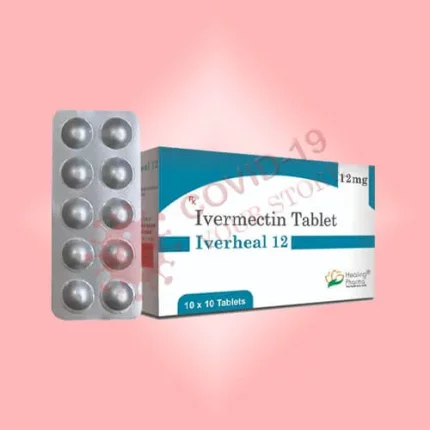What is Ivermectin?
Ivermectin is a medication primarily used to treat parasitic infections in humans and animals. It belongs to a class of drugs called anthelmintics, which target and kill parasites such as worms, lice, and mites. It is available in various forms, including tablets, topical creams, and injectable solutions. Ivermectin is most commonly prescribed for treating conditions like onchocerciasis (river blindness), strongyloidiasis, scabies, and head lice. It works by disrupting the nerve and muscle function of parasites, causing them to die.
How Does Ivermectin Work?
Ivermectin works by binding to specific chloride channels in the nerve and muscle cells of parasites. This action allows chloride ions to enter the parasite’s cells, leading to paralysis and eventual death of the parasite. The drug targets specific proteins that are essential for the survival of the parasite, making it highly effective in eliminating a range of parasitic infections. Ivermectin is particularly effective against parasitic worms and external parasites like lice and scabies mites.
Benefits of Ivermectin
- Effective against a wide range of parasitic infections: Ivermectin is proven to be highly effective in treating parasitic infections, including onchocerciasis, strongyloidiasis, scabies, and head lice. It has also been used off-label for other parasitic conditions.
- Safe and well-tolerated: When used according to a doctor’s prescription, Ivermectin is generally safe and well-tolerated. It has been used for decades to treat a variety of parasitic conditions, and millions of people worldwide have benefited from its effectiveness.
- Convenient and easy to take: Ivermectin is typically available in oral tablet form, making it easy to take. It can be taken as a single dose or as part of a treatment regimen, depending on the infection being treated.
- Affordable: Ivermectin is available in generic form, which makes it an affordable option for those in need of treatment. This accessibility helps ensure that people in both developed and developing countries can benefit from its use.
How to Take Ivermectin
Ivermectin is typically taken orally in tablet form, with or without food. The dosage will depend on the condition being treated, and your healthcare provider will provide specific instructions. For some conditions, a single dose may be enough, while for others, multiple doses over a period of time may be necessary.
For example, for conditions like scabies or head lice, a single dose may be prescribed. However, for more serious infections like river blindness (onchocerciasis) or strongyloidiasis, additional doses may be required. It is important to follow the dosage instructions provided by your doctor to ensure the medication is effective and safe.
Ivermectin should be swallowed whole with a glass of water. The tablet should not be chewed, crushed, or broken, as it is designed to be taken intact. Always follow your healthcare provider’s instructions regarding the dosage and frequency of treatment.
Who Makes Ivermectin?
Ivermectin was originally developed by Merck & Co., which holds the patent for the branded version of the drug. However, due to its widespread use and demand, Ivermectin is also produced by several generic pharmaceutical companies around the world. Generic versions of Ivermectin are available under various brand names and are widely accessible. The availability of generic versions makes Ivermectin an affordable treatment option for many individuals.
Is Ivermectin Safe for Humans?
Ivermectin is generally considered safe for humans when used as prescribed by a healthcare provider. It has been approved by the U.S. Food and Drug Administration (FDA) for the treatment of several parasitic infections. Millions of people have safely used Ivermectin to treat conditions like scabies, river blindness, and head lice.
However, as with any medication, there are some precautions to consider. Pregnant and breastfeeding women should consult their healthcare provider before using Ivermectin. People with liver disease or other pre-existing medical conditions should also speak with their doctor before taking this medication. It is important to follow the prescribed dosage and avoid self-medication to prevent potential risks.
Side Effects of Ivermectin
While Ivermectin is generally safe, some individuals may experience side effects. Common side effects include:
- Mild skin rash or itching
- Nausea or vomiting
- Dizziness or lightheadedness
- Abdominal pain
- Fatigue or weakness
In rare cases, more serious side effects may occur, including:
- Severe allergic reactions (swelling, difficulty breathing)
- Severe dizziness or fainting
- Vision changes
- Confusion or mental status changes
If any of these side effects occur, it is important to seek immediate medical attention. You should also inform your healthcare provider of any other medications you are taking or medical conditions you have to avoid potential drug interactions or complications.
Disclaimer
This content is for informational purposes only and should not be considered medical advice. Always consult a healthcare provider before starting any new medication, including Ivermectin. The information provided here is not a substitute for professional medical guidance, diagnosis, or treatment. The use of Ivermectin should be supervised by a healthcare professional to ensure safety and effectiveness.











